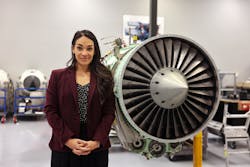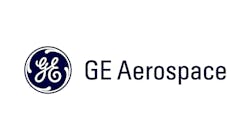Serviceable part inventory has tripled, and sales have increased by more than 2,000% since 2019, when Chelsea Pearse began managing Duncan Aviation’s Engine Parts Reclamation Program in Lincoln, Nebraska.
Through the TFE731 parts reclamation program, 75 percent of each engine’s parts are reclaimed and recycled.
Pearse manages the entire process from the purchase and tear down of TFE731 engines, inspection and recertification of parts, to the quoting of upcoming and available inventory to Duncan Aviation customers.
When she transferred out of the Engine Overhaul Shop, where she worked as an FAA Powerplant-certified mechanic on TFE731 engines, she says Duncan Aviation would part out one engine every few months. Now, she says, “We’re doing about one every three weeks.”
In 2019 Duncan Aviation had a significantly smaller inventory of parts, which she says were more of an afterthought. In the two years that followed, Pearse bought about a dozen engines, which each had more than 1,000 parts requiring inspection. Now, she said, “we do that in about a year.”
Using reclaimed parts today is top of mind. Duncan Aviation today relies more heavily on reclaimed parts for engine repairs, which have provided lower cost options. And, Pearse says, “Used parts now are a more valuable asset than they’ve ever been.” Not waiting for new parts to come in, especially during the supply chain disruptions that came after 2019, also has meant less downtime.
The reclamation program, once a one-person job, now has a team of five.
“The fact that this program has grown so much and supports so many engines that come through our doors, I’m really proud of that and of the potential for future growth. I think we’ve got a really good system now. In the future, we might be able to expand those numbers.”
Pearse started working at Duncan Aviation, after serving five years in the United States Marine Corps working on the KC-130J.




